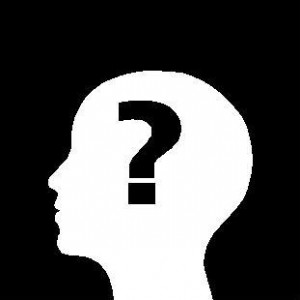 Like the proverbial moth drawn to the flame, I am attracted irresistibly to unanswerable questions. I’m in good company; as philosopher Hannah Arendt stated, “Man’s need to reflect encompasses nearly everything that happens to him, things he knows as well as things he can never know.”1 Yet we can benefit by thinking more clearly about our perplexity.
Like the proverbial moth drawn to the flame, I am attracted irresistibly to unanswerable questions. I’m in good company; as philosopher Hannah Arendt stated, “Man’s need to reflect encompasses nearly everything that happens to him, things he knows as well as things he can never know.”1 Yet we can benefit by thinking more clearly about our perplexity.
My colleague Roger Verdon’s brilliantly poignant blog post on Amy Winehouse’s fatal addiction inspired the present post. The question, “Can’t or won’t?” was an implicit subtext throughout Roger’s reflections: Can’t stop using or won’t stop using?
This question pervades our clinical practice: Can’t or won’t stop smoking, drinking, drugging, spending, thieving, bingeing, worrying, obsessing, counting, checking, avoiding, withdrawing, cutting or attempting suicide? Can’t or won’t stop being arrogant, oppositional, obstructionistic, submissive, self-sacrificing, self-defeating, reckless or impulsive? In my view, this can’t/won’t question strikes at the core of a quandary about our professional identity: Are we technologists or ethicists?
Intending to be provocative, and expanding on a previous post,2 I will state the polar extremes in caricature form in this post, hoping to evoke conflict. In a subsequent post, aspiring for moderation, I’ll search for some middle ground.
Can’t stop?
Ostensibly, we mental health professionals make our living on the “can’t” side of this quandary: You are ill; let us treat you with our scientific technology. The number of human problems we diagnose as psychopathology has increased with each new iteration of the Diagnostic and Statistical Manual of Mental Disorders, now in its fourth edition.3 This enterprise is scientific: Through research,
- we distinguish among disorders;
- we develop technology to treat them (i.e., treatment manuals); and
- we study the effectiveness of the treatments.
Neuroscience now drives home the point that these disorders are real—addictions included. All in your head, indeed, but increasingly evident in altered brain structure and function.
Won’t stop?
 Now for won’t: not enslaved by illness but rather making bad choices. Here’s a book title that rankles me: Depression is a Choice.4 In this vein, decades ago, psychiatrist Thomas Szasz5 caused an uproar with his outrageously titled book The Myth of Mental Illness. If one had any doubt, neuroscience now demonstrates that mental illness is no myth. But I never thought we needed neuroscience to refute the idea that mental illness is a myth; clinical observation was enough to do so for me. Hence I couldn’t stand Szasz’s book—until I read it recently.
Now for won’t: not enslaved by illness but rather making bad choices. Here’s a book title that rankles me: Depression is a Choice.4 In this vein, decades ago, psychiatrist Thomas Szasz5 caused an uproar with his outrageously titled book The Myth of Mental Illness. If one had any doubt, neuroscience now demonstrates that mental illness is no myth. But I never thought we needed neuroscience to refute the idea that mental illness is a myth; clinical observation was enough to do so for me. Hence I couldn’t stand Szasz’s book—until I read it recently.
His extremism notwithstanding, Szasz made a compelling point in arguing that psychotherapy is not suited for treating (mythical) illness but rather for addressing problems in living. More specifically:
Psychiatrists are not concerned with mental illnesses and their treatments. In actual practice they deal with personal, social and ethical problems in living.
Here is a point I find persuasive: “Psychologists and psychiatrists deal with moral problems which, I believe, they cannot solve by medical methods.”
In light of Szasz’s provocative claim, I find it fascinating that, two millennia ago, what we now call psychotherapy was the province of ethicists. In her illuminating book The Therapy of Desire, philosopher Martha Nussbaum6 documented the venerable history of psychotherapy in the practice of ancient Greek and Roman philosophers, as exemplified by Socrates.
Using collaborative discourse as a therapeutic tool, the classical ethicist worked with individuals as well as groups. Consider the following problems in living addressed in ancient ethics: dependency, love, sexuality, jealousy, anger, resentment, loss, death and suicide. Sound familiar? Long antedating Freud in their struggles to promote self-exploration, the Romans and Greeks were attuned to unconscious conflicts, including unconscious resistances to self-knowledge and to change.
To put the point most provocatively, as philosopher Charles Taylor7 has done, we mental health professionals are part of a social movement that is converting sin into sickness. Karl Menninger8 made a similar argument earlier in his powerful book Whatever Became of Sin? Stating it somewhat less provocatively, we have aspired to put science and technology in place of philosophy and ethics. I have no doubt about the potential benefits of this conversion, but I worry that we’ve gone too far. I think our justifiable fascination with neuroscience can contribute to the imbalance to the extent that we become excessively enthusiastic and reductionistic, caught up in biomania.9 The extreme version of can’t: My brain made me do it (or prevented me from doing it).
In pursuit of scientific explanations, do we want to shed responsibility? With responsibility and choice comes dignity. Might we be better off opting for won’t?
References
1. Arendt H. The life of the mind: I. Thinking. New York: Harcourt; 1971.
2. Allen JG. “What’s become of sin?” SayNoToStigma.com. Houston: The Menninger Clinic; 2010.
3. American Psychiatric Association. Diagnostic and Statistical Manual of Mental Disorders, Fourth Edition, Text Revision (DSM-IV-TR). Washington, D.C.: American Psychiatric Association; 2000.
4. Curtiss AB. Depression is a choice. New York: Hyperion; 2001.
5. Szasz TS. The myth of mental illness: Foundations of a theory of personal conduct (Revised Edition). New York: Harper and Row; 1974.
6. Nussbaum MC. The therapy of desire: Theory and practice in Hellenistic ethics. Princeton, N.J.: Princeton University Press; 1994.
7. Taylor C. A secular age. Cambridge, Mass: Harvard University Press; 2007.
8. Menninger KA. Whatever became of sin? New York: Hawthorn Books; 1973.
9. Allen JG. “Biomania: A protest.” SayNoToStigma.com. Houston: The Menninger Clinic; 2010.